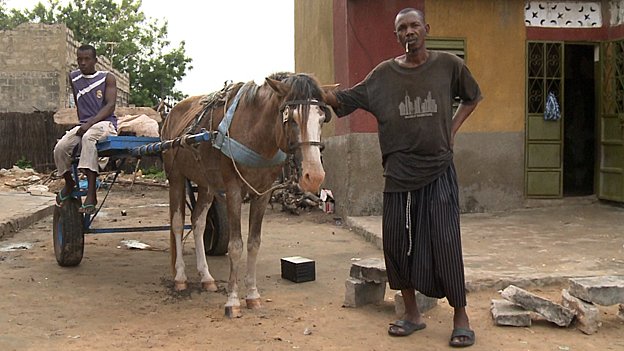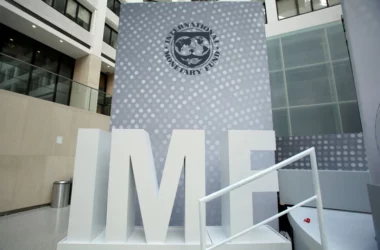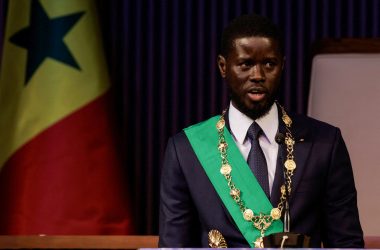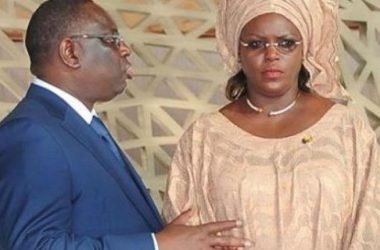

(JollofNews) – “This is our concern. When it comes to raising cattle it’s our job, when you’re born you see your father doing it, it represents everything to us.” Abdoul Ba is a farmer.
He has lived here in Djilor, the tiny village where he was born, for all of his 56 years. Like 70% of the population of Senegal, he raises cattle. But these are more than cows. For Mr Ba and his family they are livelihood, larder, wealth, status and retirement fund. They are everything. It is a common story across Africa. So when those animals are stolen, some families are left in such dire circumstances that cases of suicide are not unheard of. The last time the cattle rustlers struck, Mr Ba lost seven animals. He was lucky. About 120 were taken that night.
“It was very hard for us but we had to accept it. They were stolen when they were returning to the field after drinking here at home,” he says. “We looked for months with the help of neighbours, we looked in all the districts and villages around, and we didn’t find them. We decided in despair that we had lost them.”
Follow the herd
In a country that relies heavily on agriculture – an estimated 490bn CFA francs ($1bn, £592m) of livestock roam the countryside – this is a problem that goes beyond individual families to the industry as a whole. And it is something the government, not just the cattle farmers, wants to stamp out.After taking a class in computers, Amadou Sow realised: “The problems that the farmers face could be solved by technology.”

So he decided to go to Dakar and talk to the people at Microsoft about his idea, and see if they would help. They decided they probably could.
This was the seed from which Daral – which means “cattle market” in the Wolof language – grew. The application is a collaboration between Microsoft 4Afrika, non-governmental organisation Coders4Africa, and a team of young developers.You won’t find many high-speed internet connections in the middle of rural Senegal, so it relies heavily on mobile phone technology.
“If you take 10 African people… three have computers, but if you take the same 10 we have 10 African people with 10 mobiles,” says Coders4Africa’s Leger Djiba. “We are sure that the best way to give information, to deliver information, is using mobile.” The application is designed to gather livestock data for the Senegalese ministry of livestock, with the aim of protecting cattle from theft and monitoring their health. Animals are registered on a web-based application, which generates a unique number, and a photo can be uploaded with a description. In the field, project representatives connect laptops to the web using a mobile broadband dongle. If the animal should fall victim to rustlers, the farmer can then contact police and have a region-wide SMS alert sent out using his basic mobile handset.
Healthy returns
“The farmers often don’t respond to the vaccination campaigns,” says livestock inspector Mamadou Dia. “The response is really insufficient, insignificant. “You’ll go and see the head of the village, the PRCs [presidents of the rural communities] and the boss of the cattle herders, tell them about it, but the day of the campaign, the farmers don’t come.”
So text messages are sent to remind the farmers. If an animal falls sick the farmer can in turn send a message describing symptoms and ask for help. Since May, just over 2,000 farmers in the pilot districts of Fatick and Kaolak have signed up to the programme. Finding out what the farmers actually want from such a system has been an important part of the development process, its developers say. “You go, you get feedback and you come back and you modify things,” says Projet Daral’s Mansour Fall. “You don’t just create the whole software and then say, ‘Okay here it is now.’ As you build it you get feedback and you modify and you go along,”
The next stage involves being able to track individual cows by implanting radio frequency identification (RFID) tags that can be read with a handheld scanner.
Around 2,000 chips have been shipped, with a further 10,000 on the way. “We did not want to have tags on the animals because usually the tags are done on the ear of the animal, like an earring,” says Microsoft’s Seynabou Ndoye-Sene. “Then the thief cuts the ear – we did not want the animals to be mutilated.” Early indications are the project may be acting as a deterrent, as none of the farmers involved in the trial have had cattle stolen. It remains to be seen if that will continue to be the case.
Other changes are being made to dissuade would-be cattle rustlers.
The justice department of Senegal has doubled prison sentences for livestock theft to 5-10 years, something farmers have lobbied for for some time.
Virtual veg
Not everyone relies on livestock in Senegal – arable farming is massively important, too. Aboubacar Sidy Sonko’s parents are farmers. So when France Telecom launched a competition for young developers, he used their experience as inspiration. The result, mLouma, is an online produce marketplace that has already won multiple awards in Africa and beyond. It provides a secure way for farmers to sell their produce directly to buyers in the cities at market price, rather than being short-changed by visiting produce buyers. Goods to sell are uploaded by SMS or through a mobile app, so expensive equipment is not necessary. “We know that around 70% of Senegalese work in agriculture. They are making very good things, products of quality,” says Mr Sidy Sonko.
“But they are in places where they are invisible. The second problem is intermediaries who offer producers low prices. In the face of this, technology gives farmers the ability to have people in Dakar, in Paris, anywhere, see what they are doing.”
Having started with onion farmers, the company is now expanding and working out better ways for their producers to get their goods to buyers. Now is the time for Senegal’s start-ups to look to agriculture, Mr Sidy Sonko says.
“There is a real potential; we think it’s the moment for people to use technology to help those at the bottom of the pyramid,” he says. “The impact is the growth of the producers’ income. It’s a considerable impact. “There needs to be lots of solutions like mLouma here in Senegal,” he adds. Back in Djilor, the farmers there may well agree. As they gather just before dusk under a large tree in front of the village mosque, the talk is of a simple question of survival.
“It’s very serious because it raises a lot of concern for your family. It’s really hard to lose your cattle, after great expectations you just realise that you lost everything and it’s really difficult to face,” says village president Omar Ba. “So when you lose it you really feel it. It can transform your life.”
Written by Fiona Graham
Source: BBC News














